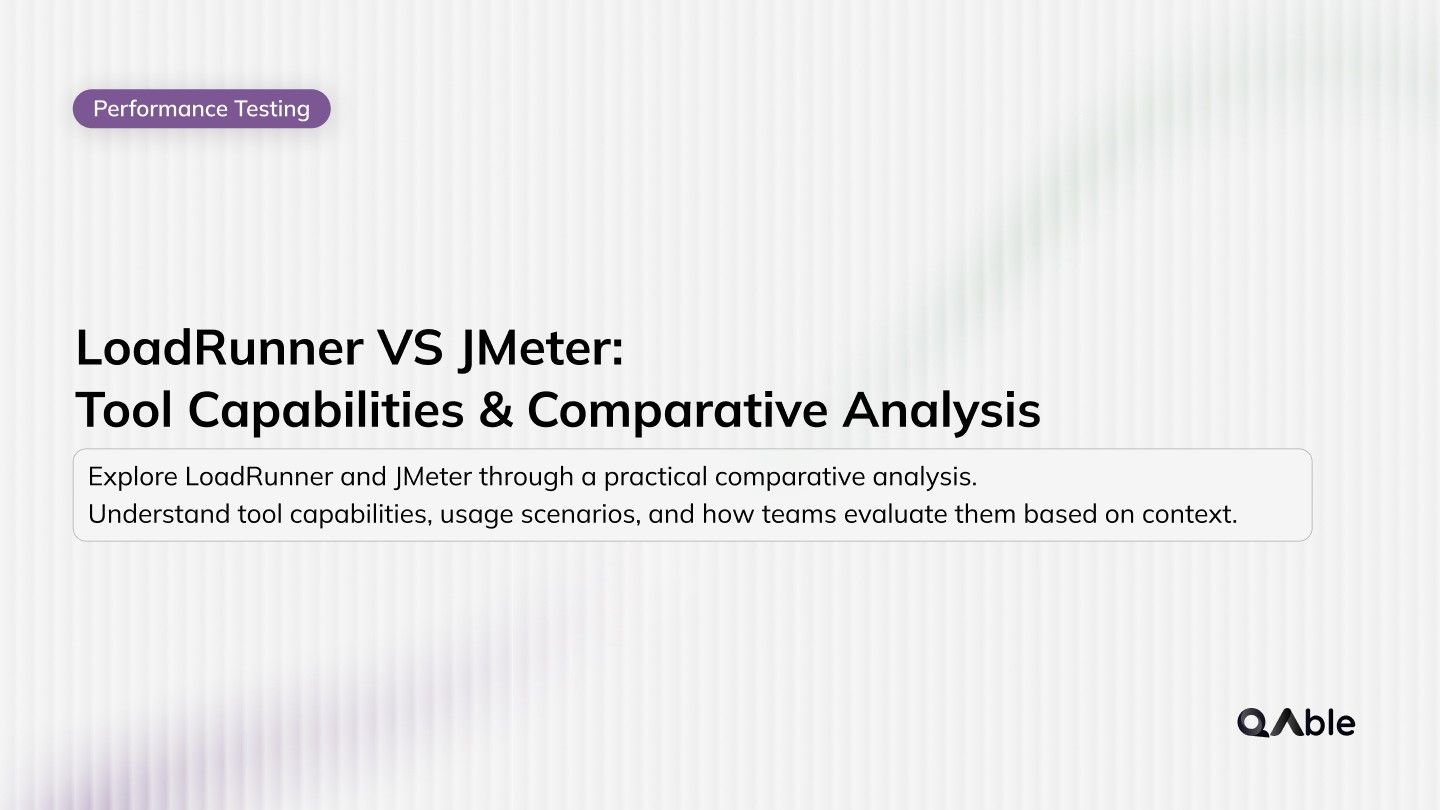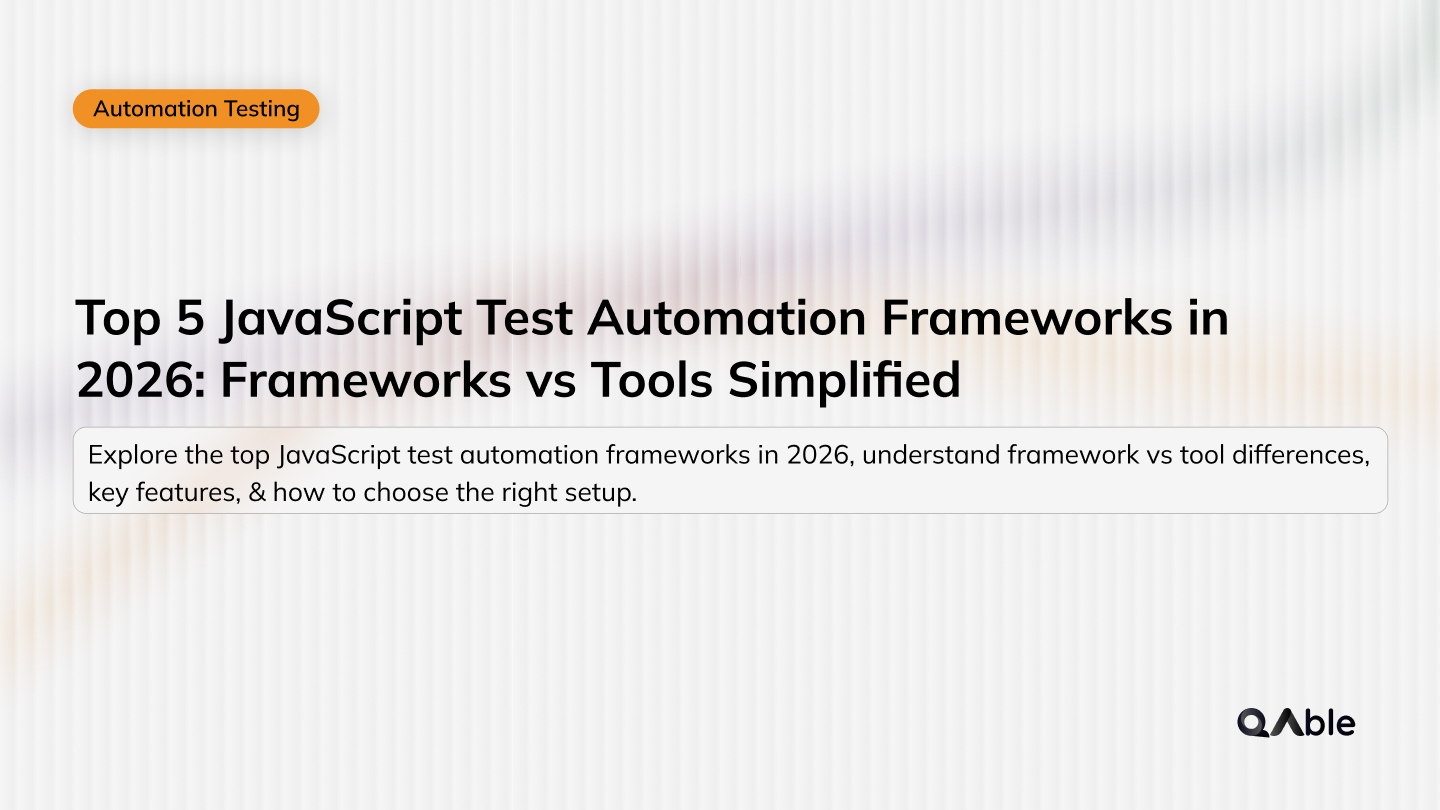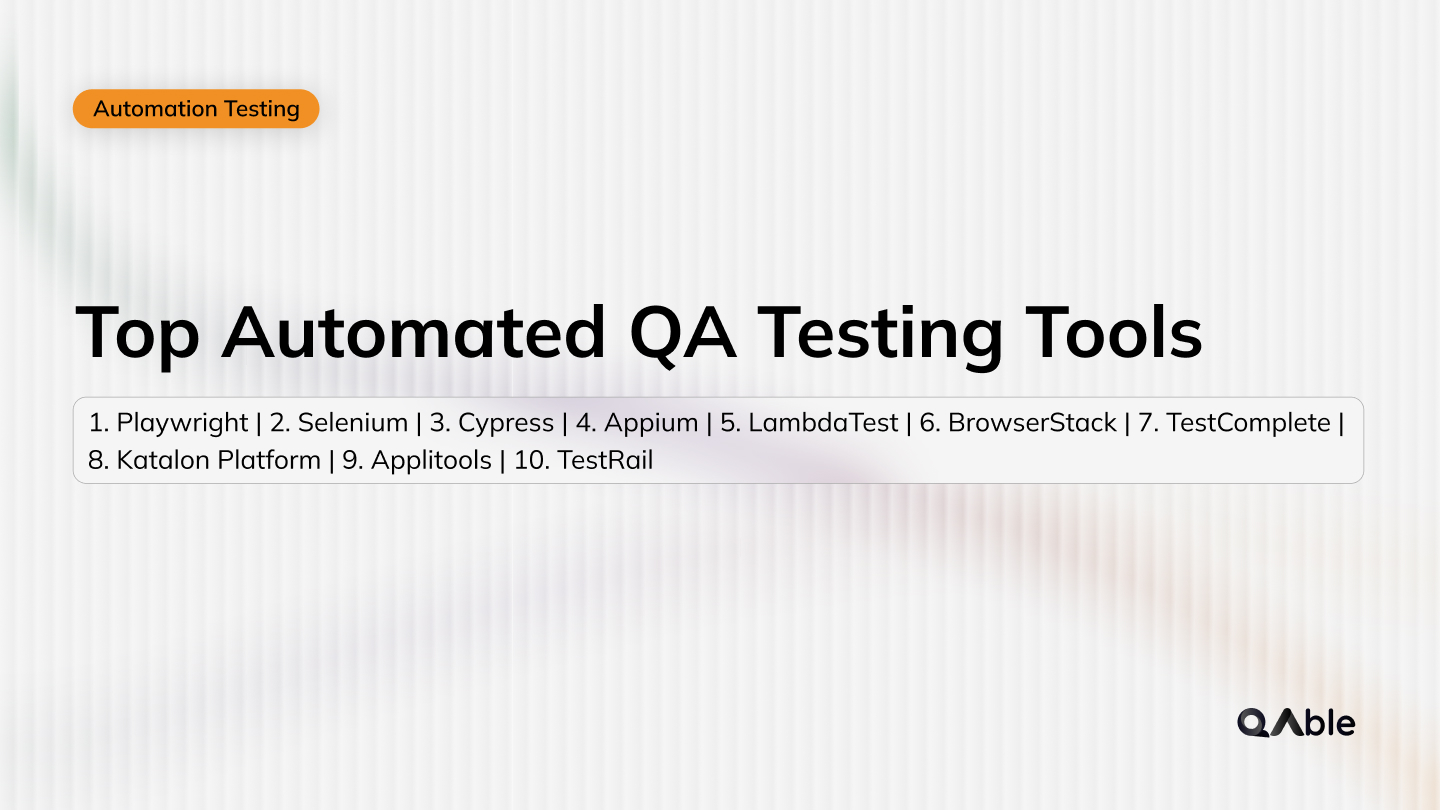Table of content
SHARE THIS ARTICLE
Is this blog hitting the mark?
Contact Us
Modern healthcare premises are not what they used to be a decade ago. It's very difficult to even imagine an industry that has not been affected by the touch of advancing technology.
We have digital solutions around for countless industries today and Healthcare is one of those. These solutions have transformed patient care and re-defined medical processes.
Getting appointments with a doctor, sharing and analyzing reports, getting prescriptions, and whatnot, can be handled by an application with just a few clicks. Magical, Isn’t it? As healthcare applications embrace these digital solutions with the use of modern applications, the need for these apps to be tested for quality and reliability has become even more paramount.
So, How can healthcare organizations meet this challenge to keep up with the advancing technology?There must be a solution that helps these applications to match up with the current technology standards. Right?Yes, Indeed.
DevOps for healthcare applications has helped the industry to keep up with the pace. DevOps is a hot trend in the technology world and it's not showing any signs of slowing down regardless of any industry.
According to Expert Market Research (EMR), the global market size for DevOps touched a value of around USD 9.2 billion in the year 2022.
It is further expected to expand at a CAGR of 25% between the years 2023 and 2028 climbing up to a value of USD 36.3 billion by the year 2028Another report by Data Bridge Market Research states that the global DevOps market is expected to account for USD 3.0 Billion by the year 2029.

Okay! We now understand that DevOps is the real deal in current times and the future as well. But that answers only the first part of the question. What about the Quality of Healthcare Applications being used?
They need to be tested well to ensure that they work as per their intended designs and functionalities. Quality Assurance or QA in DevOps for Healthcare Apps is the approach that bridges the gaps striking a balance between Development and Operations ensuring the quality of your healthcare application.
In this blog, we will cover the main aspects of QA in DevOps for healthcare apps to make sure that your app checks green on all points when it comes to matching speed, reliability, and security with the current standards of healthcare app testing.
Table of Content
- The Need for QA in Healthcare Apps
- Advantages of QA in DevOps for Healthcare Apps
- QAble: Empowering Healthcare Apps with DevOps
- FAQs
The Need for QA in Healthcare Apps
Before jumping to the topic of QA in DevOps for Healthcare Apps, understanding the need for quality testing in such apps is imperative.
Below are some of the points that showcase the same:
Ensuring Patient Safety
Nothing is more important than making sure that the patient’s health is the top priority in the healthcare industry. Even a minor defect in the healthcare application can have serious consequences for patients.
QA testing helps to identify and resolve the issues of a healthcare application to be deployed in the real world. By testing every aspect of healthcare apps, from features to interfaces to data flows, we can make sure they work as expected, minimizing the chance of mistakes and protecting patient well-being.
Meeting Regulatory Compliance
Patient data is sensitive information that must comply with rigorous regulations, such as PHI, HIPAA, GDPR, and other data privacy laws that vary across regions and countries.
QA testing makes sure that the healthcare application follows these guidelines and regulations. This helps in protecting patient’s data. Additionally, it helps in preventing legal and financial problems and liabilities.
Also Read: Quality Testing: The Secret Sauce to Ensure HIPAA-Compliance
Enhancing User Experience
Users expect healthcare applications that are simple to use. QA testing analyzes the application’s appearance, functionality, and performance, making sure that users can access information and complete tasks effortlessly.
By resolving and enhancing usability issues, QA testing increases user satisfaction, convincing patients and healthcare professionals to fully utilize and rely on these applications.
Optimizing App Performance
Healthcare applications need to work without errors or defects, especially when lives are at stake. QA testing involves load testing and stress testing to simulate real-world scenarios.
Testing the application’s performance under variable user loads, and detecting performance problems, and scalability challenges enable healthcare organizations to improve and optimize their applications, ensuring they can keep up with high user requests and run flawlessly during busy hours.
Reducing Costly Errors and Downtime
Software glitches and problems in healthcare applications can cause expensive mistakes, interruptions, and delays in medical processes.QA testing reduces these risks by finding and fixing defects before they reach the end users.
Implementing such measures can help in reducing the system’s downtimes. This also helps to the system away from financial problems. Additionally, it helps boost the overall productivity of healthcare operations.
Advantages of QA in DevOps for Healthcare Apps
So, we went through the importance of QA testing for healthcare apps. With a clear understanding of the significant role that a QA tester plays in healthcare apps, let’s dive into the core subject of the blog, i.e. advantages of QA in DevOps for healthcare apps.
Faster Release Cycles

- DevOps in healthcare app testing enables the developers and the QA teams to work together in sync leading to faster iterations and reduced time-to-market for healthcare apps. The fast delivery of these applications is very important since it can have a direct impact on patient care and outcomes.
- The healthcare application needs to be updated at all times. DevOps tools help the QA to test the features as soon as they are added. This leads to the fast release of the updated application.
Continuous Testing and Feedback

- QA in DevOps aims to test the healthcare application in a continuous way. This helps improve the application in an iterative manner. The QA team can keep up with the development people at all stages of application development.
- The overall quality of the healthcare application gets better when it gets tested. It also helps to be ready for any unintended behaviors of the application.
- It promotes resolving any issues or bugs faster.
Better Risk Management and Compliance

- In a healthcare application, there are many risks to be taken care of while dealing with patient data. Some of them include keeping patient data private. It also has to be stored in a secure manner. DevOps helps QA to keep everything organized.
- The CI/CD pipelines with DevOps tools also enable to identification of problems as they arise. This helps to prevent delays in taking measures for security testing.
- Compliance guidelines also get updated very often. QA utilizes DevOps methods to make sure that the healthcare app follows the regulations. In this way, the healthcare app can function without any issues from the legal point of view.
Improved Quality and Reliability

- DevOps enables the QA teams to test the healthcare apps in a fast and reliable way. Using DevOps tools helps them conduct multiple tests quickly. Tests like functional testing, performance testing, and security testing can be executed reliably.
- With DevOps, the quality of healthcare apps has also improved from a usability perspective. Usability testing can be performed efficiently with DevOps. This helps in keeping the app always user-friendly.
Enhanced Collaboration and Communication

- A collaborative approach is very important while developing and testing apps. DevOps tools are built on similar principles. It helps to keep everyone in the loop.
- DevOps is commonly used with Agile development. It’s an iterative way. This helps to keep everyone up-to-date with the progress. Apart from the development and development teams, healthcare people can also contribute to it.
- People like healthcare professionals and analysts can share their views on the process. These can be utilized by QA people to include them through DevOps tools. Ultimately, the healthcare app benefits from it.
- QA in DevOps also makes sure that the glitches or bugs are not carried on to further stages of the development or even the production stage.
Faster Issue Resolution

- Healthcare applications serve a very delicate and critical purpose by ensuring the safety and security of patients. There is no room for error since even the smallest glitch. If left unchecked, it could result in heavy damage. Testing healthcare applications with DevOps methods facilitates faster resolution of such errors in case of their occurrence.
- DevOps helps in monitoring and analyzing the development process. Insights generated and the logs captured are very helpful to get real information about system behavior promptly. This allows QA testers and developers to locate the root cause of problems very quickly and rectify them before they escalate.
Scalability and Flexibility

- With the increasing demand for software applications in the healthcare sector, the user load on such applications is immense. Scalability is one of the key aspects of developing healthcare applications and testing for it is not an easy task. DevOps enables QA testers to determine the feasibility and performance of the healthcare application with heavy user loads.
- Automation testing using DevOps helps in implementing best practices for application code and adapting to changing requirements without compromising on the quality of the healthcare application.
QAble: Empowering Healthcare Apps with DevOps
As a leading software testing company, QAble makes sure that your healthcare application checks all the boxes with the most advanced and the latest DevOps methods.
Our team of QA testers and DevOps engineers collaborate seamlessly ensuring the highest standards of quality, security, and performance for your healthcare application.
Below are the some of most important testing methods that are commonly used to ensure the quality of an application.
- Functional Testing: QAble uses best functional testing practices to make your healthcare app pass all functional quality checks.
- Integration Testing: There are multiple components in a healthcare app. These components should be tested well for proper integration. These components or modules are like the Lego bricks of an application and QAble employs expert methods to make sure that the integration is done properly.
- Regression Testing: Healthcare apps are bound to get updated regularly. Whenever a new function or feature is added to the application, it might impact the existing features. QAble employs automated DevOps methods to conduct regression tests efficiently.
- Automation Testing: DevOps has become a key to testing an application for End-2-End or E2E flows. Automation testing through DevOps helps to test systematically. QAble uses its expertise to use the best tools and practices for the same.
- Performance Testing: Healthcare apps need to perform well even under heavy user traffic. This can only be achieved by making sure that the app is developed with a scalable architecture. QA employs the best DevOps tools to perform load and performance testing for your healthcare app.
- Security Testing: It is one of the most important areas to test. Healthcare apps are laden with sensitive patient data. Testing for security is the primary target and any problems with it can prove to be a disaster. QAble’s experienced team ensures that your healthcare app is safe and can handle real-world threats like data breaches and cyber-attacks.
- DevOps Consulting: DevOps tools can be complex to handle. As a leading software testing in India, QAble’s expertise can make your healthcare app use the most suited tools in the best ways.
- Monitoring and Alerting: To ensure the continuous health of your healthcare applications, QAble sets up robust monitoring and alerting mechanisms.
- CI/CD Pipeline Setup: We assist in setting up a robust Continuous Integration/Continuous Deployment (CI/CD) pipeline for your healthcare applications.
- Compliance Testing: Compliance is critical in the healthcare industry. It makes sure that the healthcare app follows all the guidelines of the regulatory authorities. QAble makes sure that your healthcare app does not come under any legal problems by testing it for the same.
Discover More About QA Services
sales@qable.ioDelve deeper into the world of quality assurance (QA) services tailored to your industry needs. Have questions? We're here to listen and provide expert insights


Nishil Patel is the Co-founder of QAble, delivering advanced test automation solutions with a focus on quality and speed. He specializes in modern frameworks like Playwright, Selenium, and Appium, helping teams accelerate testing and ensure flawless application performance.
.svg)














.webp)
.webp)
.png)
.png)











.png)



.png)

.png)

.png)






.jpg)







.jpg)






.webp)

